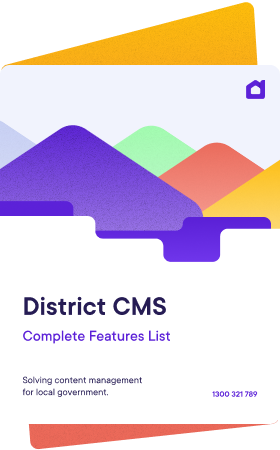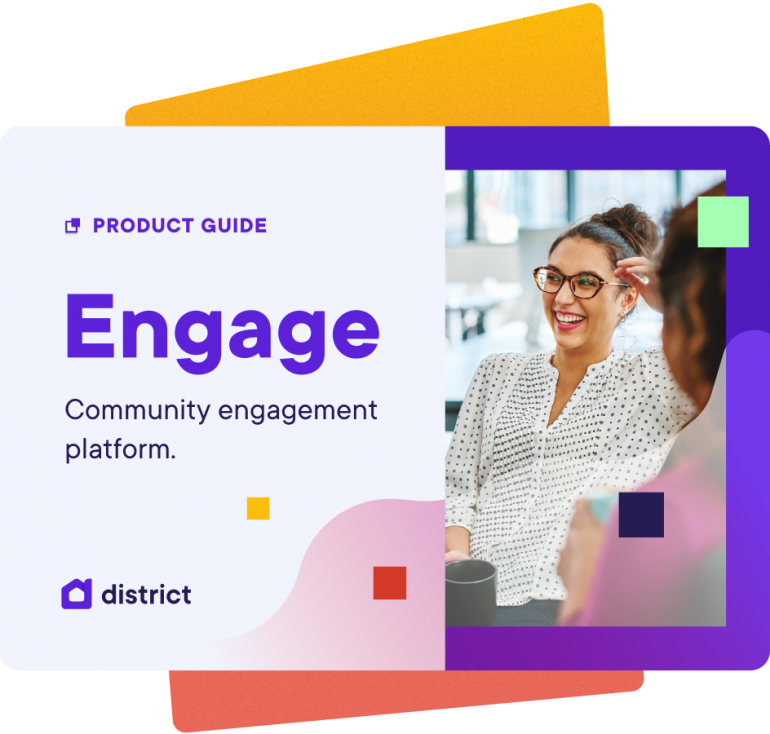What is the Local Government Act 2020?
It’s been touted as one of the most comprehensive and ambitious reforms to local government in Victoria. That’s a fair description, since the Local Government Act 2020 is set to overhaul all aspects of local government administration and functionality.
Amongst its host of mandates is one that outlines community engagement requirements. This mandate states that every council in Victoria must create a community engagement plan to be compliant with the Act.
And as Victorian councils release their Community Engagement Plans, it’s becoming apparent that this reform will have great outcomes for their constituents. The Act’s many requirements include:
- representing diverse needs
- establishing and communicating objectives
- providing accountability
- advocating for the interests of local communities
- fostering community cohesion.
For councils though, the Act requires an immense amount of additional outreach and data management work. On one hand, this work will ensure better community outcomes – but on the other, it will create a vast number of logistical complications.
So, in terms of how councils are expected to establish their communication objectives and provide accountability? Well, that’s up to them. The act states that councils need to develop a plan that covers these, and other, objectives. But it is up to the individual council to decide how they are going to take action.
So, naturally, many are looking for digital solutions with inbuilt communication and engagement platforms. Solutions that provide community engagement tools to help enact the plans they’ve developed.
Research has proven engaged citizens facilitate better outcomes for government solutions and projects using local knowledge and collaboration.
How does Victoria’s local government legislation compare to other states?
Victoria isn't the only state who has legislated community engagement. In NSW, the Local Government Amendment (Planning and Reporting) Act 2009 also requires a community engagement strategy for each council, that sets out how they will engage with the community when developing Community Strategic Plans. In Queensland, The Local Government Act 2009 also stipulates local government responsibilities in terms of community engagement, stating social inclusion, transparent processes and meaningful community engagement as benchmarks. In Western Australia, similarly, there is legislation that dictates councils use ‘genuine and, as far as practicable, representative community input’. The Local Government Association of South Australia has also developed several documents to encourage the take-up of community engagement as an element of local government planning.
How online engagement platforms can streamline the execution of engagement policies
One of the Victorian Local Government Act 2020 requirements is that councils must actively foster community cohesion and encourage active participation in civic life. To do this, allowing constituents to input consultation data online and then automatically verifying each input field has several advantages.
It makes their engagement experience easier, encouraging richer, more detailed feedback, and then more accurately collecting it. Plus, offering the opportunity for digital feedback as part of a larger engagement program allows you to reach a larger audience and wider demographic than seeking feedback offline.
In other words, seeking communication through digital channels is imperative to satisfy the Act’s requirements. But, as we’re all aware, data governance is a huge concern for anyone who collects and shares information online.
We know that Privacy issues with data collection are a real concern for leaders in this space, as are access issues. That’s why District Engage is WCAG-compliant and includes a range of security measures.
Imagine this community engagement scenario
A council has chosen to create two new playgrounds in a local area. One will be an active space for older kids, while the other will be for younger ones.
The catch is that no one on the council development committee spends much time at playgrounds. So the plan they develop looks great on paper, but they didn’t digitally consult the community.
Let’s imagine that the facilities proposed by the councils are not in line with the needs of the area’s population, a mistake that could very easily happen. An error that has been made many times in the past.
Without community engagement, they wouldn’t have discovered that the playgrounds were ill-advised because they didn’t ask the right people the right questions.
Before the Act, this would have simply been bad practice. Now, it’s active non-compliance.
Why we developed District Engage
Even though 2020 was a tough year, our team worked hard to find a silver lining - and creating a new product was exactly that.
Much of our previous work had focused on developing tech solutions for councils, including an accelerator framework. So we knew we could leverage that existing framework to create a solution that helped those councils to enact their new mandatory community engagement policies.
To develop the solution, we went back to basics and asked ourselves what would most help local councils to meet the requirements of the Act.
And the outcome was District Engage.
What is District Engage?
District Engage is a turnkey community engagement tool that we created with government agencies and councils in mind. It offers a host of digital features that all have one purpose: to make collecting, gathering, storing, analysing and publishing engagement data easy.
As a result, it speeds up the process of consulting constituents, and then cuts down on administrative overheads with automated, real-time analysis and reporting.
We wanted the solution to allow those being consulted to easily input their thoughts online. We knew it would need automatic data field verification and strict data governance to ensure later data collection was issue-free. We also knew the analysis and reporting had to be easy to access for verified, authorised council staff.
And finally, we knew that once all the data had been collected, analysed and shared, it needed to be easily downloaded into spreadsheets and other third-party applications.
Although there were other competitors playing in this space at the time, we saw the opportunity to make a better platform. And to us, better looked like a product we developed from the ground up with:
- better design
- a focus on flexibility
- decoupled architecture
- open-source software.
And, perhaps most importantly, it would be a solution that fit seamlessly into a suite of other products developed specifically with local councils in mind.
District Engage features
We developed District Engage with community engagement as its guiding principle. To ensure it meets this goal, its features include a range of solutions that help councils meet the requirements of the Local Government Act 2020. How? By providing digital tools that streamline engagement activities.
- surveys with comprehensive features and Smart Forms
- quick polls with real-time results
- map-based feedback to allow your community to share location-specific insights
- interactive, threaded discussion spaces
- ‘virtual wall’ options with sharing and voting functionality for brainstorming and collaboration
- feedback graphs and charts to display insights in real-time
- sharable report generation that creates raw data feedback
- WCAG-compliance for all projects created through the platform.
- When we developed District Engage, we knew that there was a great need for it as a standalone product. However, we also wanted it to have the edge of fitting seamlessly into a bigger ecosystem (District CMS). This creates an overall solution that addresses the range of complex digital problems councils face, not just engagement.
Future-proof your engagement: book a guided demo today!
Councils and government bodies who use analogue solutions, or less evolved digital solutions, risk losing access to their data over time. This can be due to changes in software, staff turnover or several other factors.
District Engage enables your council to keep revisiting data over and over in the future. As a result, you can keep drawing on and adding to your most valuable resource – the opinions and feedback of your constituents – for years to come.
To learn more about how District Engage could help your council comply with the Victorian Local Government Act 2020 Mandatory Engagement Policy, book a guided demonstration today.
Let us take you through the platform and show you exactly how it can make your engagement and consultation processes far more effective and compliant.






